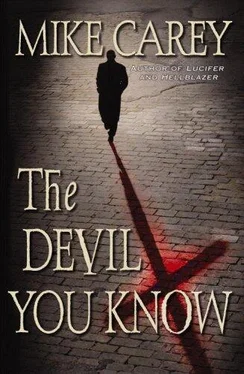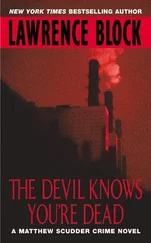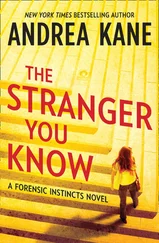The Bonnington Archive was on one of those truncated avenues, off the main north-south drag of Eversholt Street, which connects Camden Town with Bloomsbury. The rest of the street was mainly warehouses and office spaces and discount print shops, with dust-blinded windows and the occasional exoskeleton of scaffolding; but in the distance, on the far side of the railway lines, there was a block of flats of 1930s vintage, all brown brick and rust-burned wrought iron, its crumbling balconies set with lines of drying knickers like flags of surrender—and bizarrely enough, bearing a white stone virgin and child just above the portico of the main entrance, the name of the block being Saint Mary’s.
The Bonnington Archive itself stood out from the low-rise concrete monstrosities around it like a spinster among sprawling drunks. It looked to be early nineteenth century, in dark brick, four stories high, with meticulous patterns set into the brickwork underneath each row of windows, like vertical parquet. I liked it. It had the look of a palace that had been built at the whim of some senior civil servant who wanted a fiefdom, but then had died, like Ferdinand the First before he could walk across the threshold of his Belvedere. Close up, though, it was clear that this palace had long ago been divided and conquered: one of the first-floor windows was covered by a nailed-up slab of hardboard, and a doorway close by was choked with rubbish and old, sodden boxes. The real entrance to the archive, although it looked to be part of the same building, was twenty yards farther on.
The four-paneled double doors were made of varnished mahogany, liberally scarred with dents and scuff marks at the bottom, but obviously real and solid all the same. There was a brass plate beside the door that proclaimed with serifed formality that this was the Bonnington Archive, maintained by the Corporation of London and affiliated to the Joint Museums and Trusts Commission. There were opening hours listed, too, but this didn’t look like the sort of place that had the world beating a path to its door.
I stepped through into a very large and very impressive entrance hall.
Maybe I was a decade or so out in my estimation of how old this place was—the stark black and white tiling on the floor had the moral seriousness of Her black-and-white Majesty, Victoria. There was a countertop on my left-hand side made of gray marble, currently unoccupied, but as long and as impregnable as the wall of wood at Rorke’s Drift and looking as if it came from the same school of defensive fortification. Behind it, though, there were half a dozen wardrobe rails where rows of coat hangers clustered thickly. They were all empty, but at least this showed willing. The comfort and convenience of any rampaging hordes that might come through here had already been taken into account. There was an inner office farther back, on the other side of the desk, with a sign that bore the single word SECURITY. In conjunction with the deserted desk, that struck me as slightly ironic.
On my right-hand side, there was a broad, gray-flagged staircase, and above my head, a vaulted skylight with an impressive stained-glass rose emblazoned on it, struggling to shine through dust and pigeon shit. At the foot of the stairs, there were three modern office chairs covered in bright red fabric, that looked badly out of place.
I stood very quiet and still in that tired, grimy light, waiting, listening, feeling. Yes. There was something there—a gradient in the air, so subtle it took a few moments to register. My eyes defocused as I let the indefinable sense that I’ve honed through a couple of hundred exorcisms slowly open itself to the space that surrounded me.
But before I could begin to focus on the fugitive presence, a door slammed loudly on my left, making it skitter out of reach. I turned to look over my shoulder as a uniformed guard came through from the security office. He looked the business, despite being somewhere in his fifties: a hard man with mud brown hair that wasn’t so much receding as fleeing across his forehead and a nose that had been broken and reset at some point in his career. He straightened his tie like a man walking away intact from a nasty bit of rough-and-tumble. For a moment, I thought he was going to ask me to assume the position.
But as soon as he smiled, you could see that it was all show. It was a puppy-dog smile, a smile that wanted to be friends.
“Yes, sir?” he said, briskly. “What’ll it be?”
I fought the urge to say a pint of heavy and a packet of crisps. “Felix Castor. I’m here to see Mr. Peele.”
The guard nodded earnestly and pointed a finger at me as if he was really glad I’d brought that up. Rummaging for a moment under the counter, he came up with a black Bic biro and nodded me toward a large daybook that was already out on the countertop. “If you’d like to sign in, sir,” he said, “I’ll let him know you’re here.”
As I signed, he picked up a phone and tapped the hash key, then three others. “Hello, Alice,” he said, after a brief pause. “There’s a Mr. Felix”—he glanced down at the daybook—“Castro down at the front desk. Yes. Fine. All right. I’ll tell him.” Alice? I’d remembered Peele’s first name as Jeffrey.
The guard put the phone down and waved expansively in the direction of the chairs—the same gesture that actors use when they want you to applaud the orchestra. “If you’d like to take a seat, sir, someone will come along and see to you shortly.”
“Cheers,” I said. I went and sat down, and the guard invented things to do at the desk in a transparent effort to look busy and purposeful. I closed my eyes, shutting him out, and tried to find that teasing presence again—but there was nothing doing. The small noises of the guard’s movements were enough to shake my fragile concentration.
A minute later, there were footsteps on the stairs. I opened my eyes again and looked up at the woman who was coming down to meet me.
She was something to look at. As I sized her up, I slid my professional detachment into place like a visor over my eyes. I’d have put her in her late twenties, but she could have been older and just wearing it well. She was on the tall side and very slim—wiry, workout slim, rather than just slim-built—with straight blonde hair drawn back into a tight bun, which in other company might have been called a Croydon face-lift. Not here, though. She was well dressed—even immaculately dressed—in a gray two-piece that consciously and stylishly mocked a man’s business suit. Her shoes were gray leather with two-inch heels, plain except for a red buckle on the side of each, the red being picked up by a handkerchief in her breast pocket. At her waist, looped around a gray leather belt, was a very large bunch of keys. With that detail, and with the stern haircut, she looked like the warden in the kind of immaculate women’s prison that only exists in Italian pornography.
Then she spoke and, just as it had with the security guard, her voice made all the other details break apart and come together in a new pattern. The timber was deep enough to be thrilling, but the cold tone checked that effect and put me firmly back in my place. “You’re the exorcist?” she asked. I had a momentary flashback, without the benefit of acid, to James Dodson saying, “You’re the entertainer?” There wasn’t an inch or an ounce to choose between them.
I’m used to this. Cute and fetching though I am in my own right, the job casts its ineluctable pall over the way people perceive me and deal with me. I looked this high-gloss vision right in the eyes, and I saw exactly what she was seeing—a snake-oil salesman offering a dubious service at a premium rate.
“That’s me,” I agreed amiably. “Felix Castor. And you are?”
Читать дальше











